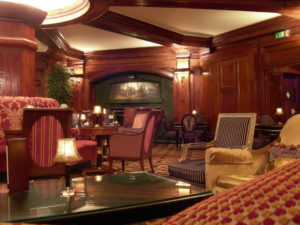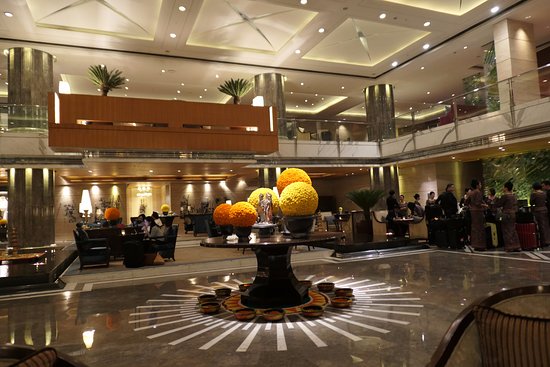Boutique hotels can be considered the new kid of the block. Although they’ve been in existence for several decades, operating under the banner of ‘independent’ hotels, it’s only recently that the world has exploded in its fascination for boutique hotels.
Today, more than ever, travelers are looking beyond the usual frills and fancy that are offered up in the name of hotel stays. They want a more intimate, more unique experience that brings them closer to the community the hotel is located in. In such a scenario, boutique hotels stand in direct opposition to their flashier, empire-like counterparts – the chain hotels.
But, despite their general appeal, boutique hotels have to make the same effort, and sometimes more, to establish their brand. Without a strong identity to guide them, it’s all too easy to lose themselves in the crowd.
Why Branding?
Brands can no longer be faceless entities for the consumer. We live in the age of information where the customer has access to all kinds of resources to facilitate his buying decision. These days, brands have a life and existence of their own, and customers interface with these identities on a daily basis.
Take yourself. What comes to mind when someone says the word “Marriott?” You’ll immediately conjure up an image of something intensely luxurious and opulent. Large foyers, gilded ceilings, soft-spoken yet crisply smart waiters, silver tureens and state of the art facilities. Why does your brain associate all this with one simple word?
That’s the magic of a brand. And the value of building it.
Think about the concept of identity, like your name, or who you are. All those things that go into making ‘you’ are also the things that set you apart from the rest of humanity. The same goes for a brand. It is an entity that is distinct from other entities in the same industry. In business-speak, this is called differentiation.
So, what differentiates one hotel from the other and why should we even engage in differentiation? The answers to these questions are altogether simple. Danny Meyer, the CEO of the Union Square Hospitality Group (USHG), states that ‘recognition’ is the primary reason why guests wish to return to the same hotel.
Recognition only stems from uniqueness, and if you want to cultivate a battalion of loyal consumers, you’d better engage quickly. The reason why boutique hotels have been on the rise in the last decade is because the modern traveler does not want a monolithic experience that he will get in any typical chain hotel. They want a uniquely curated experience that they can fondly remember, and if they get that, they will come back to you.
That brings us to the next aspect – what differentiates one hotel from the other? Experience differentiates. All that your guests are exposed to, that they feel, that they’re touched by when they interact with the tangible aspects of your brand constitutes its ‘experience’.
A strong brand is that which stands completely apart from its competitors. Think about it: A thousand others are vying for the consumer’s attention, essentially promising core hospitality services. Mergers and acquisitions have made it even more confusing for the customer today.
The world’s 10 largest hotel chains now offer a combined 113 brands at various price points, 31 of which didn’t exist a decade ago. This makes differentiation more important. IBISWorld also pegs the boutique hotel industry at 7 billion as of June 2017; rising at a CAGR of 4.8%.
Therefore, the essence of your brand needs to be different, and it needs to percolate down to all aspects of the brand – from your design, to service, to logo and so on. Let’s now run you through the standard elements that make up a brand.

Brand Elements
As things stand, the boutique hotel is distinguished from other hotel sectors by its uniqueness, personalized service, authenticity, quirky, aesthetic elements of surprise, and enhanced customer experiences that extend beyond the hotel space.
We’ll start with the basic, longstanding suggestions for brand building before getting specific.
Logo: This is the sign and signifier of your brand. It’s also one of the most integral parts of the brand experience, since it fosters recognition and familiarity. Good logo design is always driven by strategy unless you want people to get the wrong message. Testing your logo before finalising it is always a good idea.

Tagline, and Brand Message: Construct a strong tagline and underline key attributes of your brand, which you then use to add to your brand essence. Highlighting this without being too invasive is necessary.
Percolation: Your brand identity needs to show through in all aspects of the hotel experience. This distinction will appear from the way you answer phone calls to the way your staff greets people. All communication, offline and online, needs to consistently portray a message that contributes to the brand essence.
Design: This does not simply extend to logo and communication design. Of course, you need to be consistent with all your creatives and colour schemes, but we’re also referring to architectural and décor-based elements, which have to carry the brand identity on their shoulders.
Promise and Delivery: This is perhaps the most important. While boldness and in some cases, cockiness may be appreciated, don’t promise things that you cannot deliver. Customers shy away from such farcical engagements. For example, if your hotel is a budget hotel, then adding features that don’t exist or putting up fake pictures are extremely bad practices that you need to avoid at all costs.
Boutique Hotels, Take Note …
While branding guidelines may remain the same more or less across the board, boutique hotels may not always enjoy the flow of cash that bigger chains do. But, despite your tight budget, it is inadvisable to compromise on your branding efforts, or you might end up in a penny wise pound foolish situation.
Phase out your expenses, by all means. Prioritize certain elements of branding over the others, but don’t ignore them completely. You don’t have to go for the most expensive options, but you must consider the most effective ones
Here are a few more suggestions that boutique hotels should keep in mind before getting started with their branding efforts.
- Do not be inconsistent. I understand that boutique hotels are all about personalisation, but that can be reflected in the services you offer. The brand essence needs to be unique and reinforced as such. Too many logo and design changes are also a hindrance when it comes to establishing a recognizable identity.
- Segmentation: The best thing about boutique hotels is that it really is a place for everyone. From those who’re seeking comfort to the rugged backpacker, everyone can find what he wants here. And your hotel should strongly communicate that. Customize different packages for different kinds of travelers – businessmen, couples, families, etc. – and let it also reflect in your rates.
- Networking: This is one of the strongest strategies for the hospitality world. Networking generates more referrals, and increases legitimacy drastically. Having a good, symbiotic relationship with the locals and the environment will be an invaluable help.
- Brand Extension: Apart from your core services, you can engage in outsourcing a little. Toiletries, cutlery, linens, can all be sourced from others but branded for your benefit. Or you can indulge in co-branding, where you may tie-up with spas, décor companies and so on. This not only boosts your presences, but also gets you subsidised goods in the process. You can also invest in experiences beyond the hotel space, like customised nature walks, workshops, and more. However, choose your partners with care. They should not convey messages that are dissonant with your brand’s tone, essence, and image.
- Show Restraint: Do not overemphasize, or be too wordy with your communication, unless the format demands it. You may have a lot to say, but consider presenting it in a manner that isn’t always text heavy, like videos, infographics, or newsletters.
While these are only a few suggestions when it comes to the incredibly vast field of brand building, they are an effective starting line for you. In an industry that is so full of players, brand identity and experience will be key differentiators that need careful attention and cultivation. So, get started, and build a brand that you will be proud of one day.
Ram Gupta, the author is a hotel management graduate from India and Germany; He is a certified Hotel Administrator from U.S. and MIH from U.K. He has over 40 years of sound experience in the Hospitality, real estate industry in India, Dubai, U.K, Europe and Japan and is well versed with all areas of business including acquisitions, mergers, joint ventures, diversification, strategic planning, development and operations. He has been associated with over two dozen luxury and boutique hotel projects and has launched two hotel chains in India. He is currently an independent hotel consultant and could be contacted at ramgupta@bcgglobal.com. Website: www.bcgglobal.com


